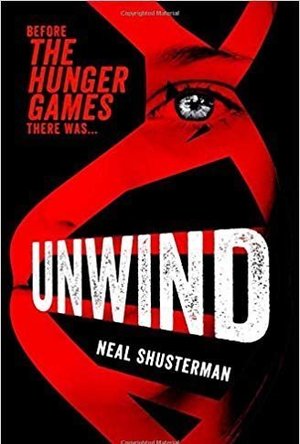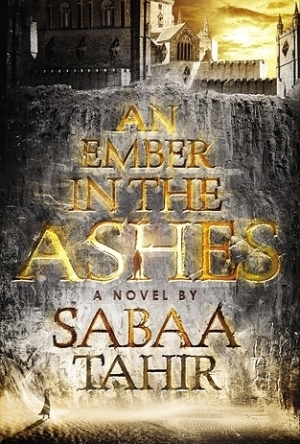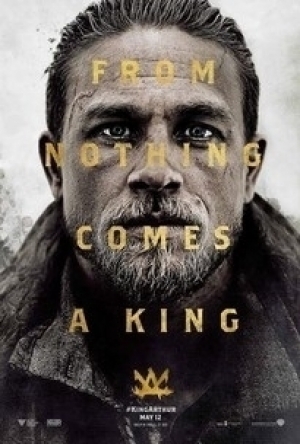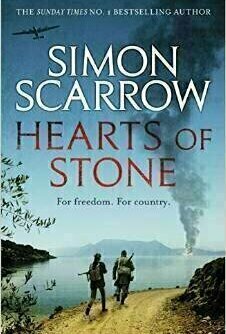Search
Search results
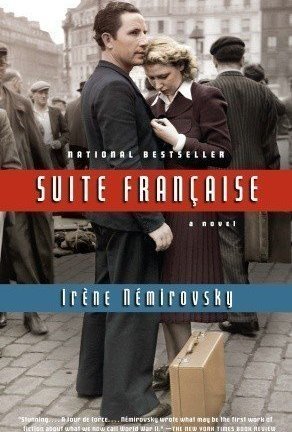
Suite Francaise
Book
By the early l940s, when Ukrainian-born Irène Némirovsky began working on what would become Suite...

The Meadows
Book
"A story of pain, injustice, love, resistance, and hope, this glorious book will lodge inside you...
YA Dystopian LGBTQ+ Science Fiction
Debbiereadsbook (1664 KP) rated His Mate by Allegiance (Lunetti Pack #3) in Books
Jul 12, 2025
steamy and deadly!
Independent reviewer for GRR, I was gifted my copy of this book.
This is book 3 in the Lunetti Pack series, and I would recommend that you books one, His Mate by Venegeance and book two, His Mate by Resistance before this one. A personal rec, is all.
I enjoyed book one, I loved book 2, but I LOVED this one!
Emilio knew that Rocco was his mate the minute they met. That kinda put his plans out, since his new husband was going to meet an unfortunate end and now his wolf would not let that happen. Rocca creeps under Emmy skin and fur and while they down and dirty quite quickly, I loved that Emmy was NOT going to bite Rocco and Rocco used his magic to bind his puppy. I loved that Rocco called Emmy puppy from the very beginning and not once did Emmy tell him to stop it!
I loved that Rocco really SAW Emmy, you know? As a witch, he didn't get the mating urge quite as bad as the shifters did, but he knew that Emmy was special, and his feelings developing super speedy was another reason that he knew.
Super smexy, and steamy! Loved that they went all in, but no biting! Rcco's power was amazing, with the wind and things and I loved that Emmy's wolf responded to that power.
Violent, too. Emilio is, after all, an assassin. But given what happens here, I think it's needed on page. Loved how Rocco responded to Emilio's trade.
Emotional, as well. Emmy is dealing with some deep emotions, after his father did what he did. And he fights Rocco all the way because of that. But once Rocco knows WHY Emmy is fighting, he understands and goes all out to make sure his puppy knows Rocco will always stand by him, and never against him.
Epilogue gives us who is next and I look forward to that one, given as Rafe and Adri have a long history!
5 full and shiny stars
*same worded review will appear elsewhere
This is book 3 in the Lunetti Pack series, and I would recommend that you books one, His Mate by Venegeance and book two, His Mate by Resistance before this one. A personal rec, is all.
I enjoyed book one, I loved book 2, but I LOVED this one!
Emilio knew that Rocco was his mate the minute they met. That kinda put his plans out, since his new husband was going to meet an unfortunate end and now his wolf would not let that happen. Rocca creeps under Emmy skin and fur and while they down and dirty quite quickly, I loved that Emmy was NOT going to bite Rocco and Rocco used his magic to bind his puppy. I loved that Rocco called Emmy puppy from the very beginning and not once did Emmy tell him to stop it!
I loved that Rocco really SAW Emmy, you know? As a witch, he didn't get the mating urge quite as bad as the shifters did, but he knew that Emmy was special, and his feelings developing super speedy was another reason that he knew.
Super smexy, and steamy! Loved that they went all in, but no biting! Rcco's power was amazing, with the wind and things and I loved that Emmy's wolf responded to that power.
Violent, too. Emilio is, after all, an assassin. But given what happens here, I think it's needed on page. Loved how Rocco responded to Emilio's trade.
Emotional, as well. Emmy is dealing with some deep emotions, after his father did what he did. And he fights Rocco all the way because of that. But once Rocco knows WHY Emmy is fighting, he understands and goes all out to make sure his puppy knows Rocco will always stand by him, and never against him.
Epilogue gives us who is next and I look forward to that one, given as Rafe and Adri have a long history!
5 full and shiny stars
*same worded review will appear elsewhere
Quinn Blackburn (3 KP) rated Unwind (Unwind, #1) in Books
May 14, 2018
Render Unto Cesar
Shusterman takes dystopian futures a step above the ordinary in this dark coming of age tale. In the not too distant future a war was fought in the U.S. over abortion, the 2nd Civil War. To appease all sides an unthinkable accord was reached. Instead of abortion, between the ages of 13 and 18 you can choose to send your child to a Harvest camp to be unwound, taken apart and all their body parts donated to others. We are given three characters with differing perspectives through which we see the workings of this world.
One angry young man always in fights whose parents have given up reaching him. One orphan, a Stork, left on someone's doorstep years ago who doesn't make the necessary grades to keep her off the Harvest camp bus. And Lev, who was conceived and raised by his devoutly religious parents as a Tithe, someone specifically born to be unwound in the church's name. This unlikely trio meet on their way to be unwound and all three are at a loss as to what to do when a resistance movement effort frees them from the bus.
What about Lev's glorious destiny to be unwound for God; is he still chosen, still a willing sacrifice? Where do you go when society says you no longer have the right to live? Who will help you survive in secret until you are too old to be unwound? How can you avoid the bounty hunters who live to capture escapees? What happens to the soul of an Unwound? Do they live on, a second conscience, a wisp of memories, within the body of their new host? Does anyone have the right to decide who in society has the right to live and who would be more useful unwound?
The writer immerses us completely in this bizarre yet oh so familiar society giving us plenty of perspectives from every level. He even included tv and radio commercials to help us understand how normal it has become to consider unwinding another human being. The creep factor is high and sustains itself through all three books in this set. Unwind introduces us to the world of the unwound in a well told thought provoking tale that may have you questioning everything you thought you ever knew about yourself.
One angry young man always in fights whose parents have given up reaching him. One orphan, a Stork, left on someone's doorstep years ago who doesn't make the necessary grades to keep her off the Harvest camp bus. And Lev, who was conceived and raised by his devoutly religious parents as a Tithe, someone specifically born to be unwound in the church's name. This unlikely trio meet on their way to be unwound and all three are at a loss as to what to do when a resistance movement effort frees them from the bus.
What about Lev's glorious destiny to be unwound for God; is he still chosen, still a willing sacrifice? Where do you go when society says you no longer have the right to live? Who will help you survive in secret until you are too old to be unwound? How can you avoid the bounty hunters who live to capture escapees? What happens to the soul of an Unwound? Do they live on, a second conscience, a wisp of memories, within the body of their new host? Does anyone have the right to decide who in society has the right to live and who would be more useful unwound?
The writer immerses us completely in this bizarre yet oh so familiar society giving us plenty of perspectives from every level. He even included tv and radio commercials to help us understand how normal it has become to consider unwinding another human being. The creep factor is high and sustains itself through all three books in this set. Unwind introduces us to the world of the unwound in a well told thought provoking tale that may have you questioning everything you thought you ever knew about yourself.
Kristy H (1252 KP) rated Dear Mr. M in Books
Feb 13, 2018
"M" is a famous writer whose best days are probably, if truth be told, behind him. He's best known for his novel, Payback, which tells the story of a high school history teacher, Mr. Landzaat, who went missing one winter after having an affair with one of his female students. That student, Laura, had moved on to a relationship with a boy her own age, Herman. The two were staying at a vacation cottage and were the last ones to see their teacher. Did they have something to do with his disappearance? Now, M lives with his beautiful (much younger) wife and little daughter in an apartment. They have a neighbor who seems to have a odd fascination with the couple, but why? The novel weaves together the tales of these disparate characters.
I had heard a lot about Koch's novels and was excited to win this one via a Goodreads Giveaway. It was certainly interesting and definitely different than many novels I read. I have to admit that it was a rather slow read, especially the first three quarters or so. There was actually a point where I was considering giving up for a bit, but I soldiered on. Some characters in the novels never have names (just initials), and we don't really get insight into who our varying narrators are. While I understand why (and it adds to the drama of the novel), I'll confess that it gets a little confusing at times. You really have to stay on your toes as you read.
Still, the novel is definitely more compelling toward the end, and I found myself staying up late to finish it. The twist at the end was certainly not what I expected. The varying viewpoints wind up working out well, as you really see the story unfold from everyone's perspective. Still, I found the story a bit diluted by a bit of a "meta" storyline about writers, as well as an odd insertion about M's father and his role in the resistance, as well as M's own views, which never really seemed to have a full role or point in the tale. I enjoyed the novel, but I didn't love it, and it (frankly) exhausted me a bit.
I received a copy of this novel via a Goodreads Giveaway (thank you!) in return for an unbiased review.
I had heard a lot about Koch's novels and was excited to win this one via a Goodreads Giveaway. It was certainly interesting and definitely different than many novels I read. I have to admit that it was a rather slow read, especially the first three quarters or so. There was actually a point where I was considering giving up for a bit, but I soldiered on. Some characters in the novels never have names (just initials), and we don't really get insight into who our varying narrators are. While I understand why (and it adds to the drama of the novel), I'll confess that it gets a little confusing at times. You really have to stay on your toes as you read.
Still, the novel is definitely more compelling toward the end, and I found myself staying up late to finish it. The twist at the end was certainly not what I expected. The varying viewpoints wind up working out well, as you really see the story unfold from everyone's perspective. Still, I found the story a bit diluted by a bit of a "meta" storyline about writers, as well as an odd insertion about M's father and his role in the resistance, as well as M's own views, which never really seemed to have a full role or point in the tale. I enjoyed the novel, but I didn't love it, and it (frankly) exhausted me a bit.
I received a copy of this novel via a Goodreads Giveaway (thank you!) in return for an unbiased review.
Erika Kehlet (21 KP) rated An Ember in the Ashes (An Ember in the Ashes #1) in Books
Feb 21, 2018
I had been listening to this audiobook for about a week during my commute to and from work, and when it ended on my way home, I couldn't believe it. It couldn't end there. It just couldn't. I wasn't ready. I wanted to know, no, needed to know what happened next! While not a cliff-hanger, there are so many things left unresolved at the end of this story, so many things left to be done, that I really hope Ms. Tahir has at least another 2 or 3 books up her sleeve. (NOTE: Since writing this review I have scoured her Goodreads page and found that yes, book #2 is in the works. I can breathe a little easier now...)
An Ember in the Ashes is the story of Laia, a Scholar girl, and Elias, a soldier in training for the Empire's army. The Scholars are the lowest class citizens in the Empire, and many of Laia's people have been killed or enslaved. Her own parents and older sister were killed for being rebels. Elias is just finishing his training as a Mask, one of the Empire's elite soldiers. When Laia's remaining family is raided one night, she goes undercover as a slave at the military academy to try to gain information she can trade to the Scholar resistance, so that they will help her find and free her brother who was captured during the raid.
There was a bit of a love triangle, which I usually hate, but each individual seemed so real, each with his own flaws and redeeming qualities, that it was easy to understand Laia's feelings. And I loved Laia herself. She was no super-woman, just a frightened girl determined to do whatever she had to in order to save the only family she had left. She was scared, she second guessed herself, but she never gave up. I admired her determination, and it's been a long time since I read a book that made me care so much about what happened to its characters.
I have to mention the narrators as well. I thought both of them did a great job, and having both a male and female narrator helped distinguish the point of view for each chapter. I hope they will be available to read again when the next book in this series is ready!
An Ember in the Ashes is the story of Laia, a Scholar girl, and Elias, a soldier in training for the Empire's army. The Scholars are the lowest class citizens in the Empire, and many of Laia's people have been killed or enslaved. Her own parents and older sister were killed for being rebels. Elias is just finishing his training as a Mask, one of the Empire's elite soldiers. When Laia's remaining family is raided one night, she goes undercover as a slave at the military academy to try to gain information she can trade to the Scholar resistance, so that they will help her find and free her brother who was captured during the raid.
There was a bit of a love triangle, which I usually hate, but each individual seemed so real, each with his own flaws and redeeming qualities, that it was easy to understand Laia's feelings. And I loved Laia herself. She was no super-woman, just a frightened girl determined to do whatever she had to in order to save the only family she had left. She was scared, she second guessed herself, but she never gave up. I admired her determination, and it's been a long time since I read a book that made me care so much about what happened to its characters.
I have to mention the narrators as well. I thought both of them did a great job, and having both a male and female narrator helped distinguish the point of view for each chapter. I hope they will be available to read again when the next book in this series is ready!
Gareth von Kallenbach (980 KP) rated King Arthur: Legend Of The Sword (2017) in Movies
Jun 19, 2019
Over countless decades the legend of King Arthur has been depicted across a range of mediums. The timeless tale of love, betrayals, action, and adventure has remained a popular and enduring tale ever since it was first introduced.
Director Guy Ritchie has crafted a very different take on the tale as he even contributed to the screenplay for the film. As such “King Arthur: Legend of the Sword”, is brimming with many of his signature elements ranging from a caper story and characters who are filled with quirks and issues.
Charlie Hunnam plays Arthur who is orphaned at an early age when his family is betrayed by his Uncle Vortigern (Jude Law). Arthur is raised in a London brothel with no knowledge of his true lineage.
Arthur learns combat and life on the streets and quickly learns how to make money through various dealings, some of which are not exactly on the level. This is where Ritchie shows his trademark style as there is a caper element to the early part of the story and a scene of Arthur and his pals walking through the aftermath of an event is complete with his signature, start, stop, and rewind moments that made up his recent “Sherlock Holmes” films.
Naturally events put Arthur and Vortigern against each other when Arthur is able to pull the legendary Excalibur from a stone as part of a test imposed on all young men of a certain age.
With his true identity in place, Arthur is marked by his Uncle as he is the only threat to his power and this forces Arthur into the protection of the resistance where he must embrace his past and find his destiny.
The film does take some liberties with the Arthurian Legend and does go a bit heavy on the FX especially with the inclusion of giant creatures which made me think at times I was watching something from the “Lord of the Rings”. The film does drag in parts but does rebound with a finale that seemed very video game esque, but sets up future films well. The cast is strong and there is plenty to like about the film as long as you are willing to be patient with the pacing of the film.
http://sknr.net/2017/05/10/king-arthur-legend-sword/
Director Guy Ritchie has crafted a very different take on the tale as he even contributed to the screenplay for the film. As such “King Arthur: Legend of the Sword”, is brimming with many of his signature elements ranging from a caper story and characters who are filled with quirks and issues.
Charlie Hunnam plays Arthur who is orphaned at an early age when his family is betrayed by his Uncle Vortigern (Jude Law). Arthur is raised in a London brothel with no knowledge of his true lineage.
Arthur learns combat and life on the streets and quickly learns how to make money through various dealings, some of which are not exactly on the level. This is where Ritchie shows his trademark style as there is a caper element to the early part of the story and a scene of Arthur and his pals walking through the aftermath of an event is complete with his signature, start, stop, and rewind moments that made up his recent “Sherlock Holmes” films.
Naturally events put Arthur and Vortigern against each other when Arthur is able to pull the legendary Excalibur from a stone as part of a test imposed on all young men of a certain age.
With his true identity in place, Arthur is marked by his Uncle as he is the only threat to his power and this forces Arthur into the protection of the resistance where he must embrace his past and find his destiny.
The film does take some liberties with the Arthurian Legend and does go a bit heavy on the FX especially with the inclusion of giant creatures which made me think at times I was watching something from the “Lord of the Rings”. The film does drag in parts but does rebound with a finale that seemed very video game esque, but sets up future films well. The cast is strong and there is plenty to like about the film as long as you are willing to be patient with the pacing of the film.
http://sknr.net/2017/05/10/king-arthur-legend-sword/
Hazel (1853 KP) rated Hearts of Stone in Books
Dec 17, 2018
<i>I received this book for free through Goodreads First Reads.</i>
Simon Scarrow brings to life the horrors of World War II in his latest novel <i>Hearts of Stone</i>. In 2013, Anna Thesskoudiss, a history teacher is contacted by a German research student, Dieter Muller who is interested in talking to her grandmother Eleni. He explains that he is the grandson of Peter Muller who was friends with her grandmother whilst staying on the Greek island of Lefkas until the war made them enemies.
Dieter Muller’s introduction implies that the story is going to be about the relationship between Eleni and Peter, which gets destroyed when Peter returns to the island as an enemy intelligence officer. The blurb for <i>Hearts of Stone</i> also implies this. However, the majority of the book focuses on their friend Andreas’ experience of the Navy and his role in the resistance. Scarrow goes into detail of every dangerous situation Andreas finds himself in, but this is not what the reader was expecting to learn about. Eventually the final chapters turn to Peter’s role in the war and the reason Eleni and he could no longer consider themselves friends.
Despite being full of action and war horrors, it gets a little boring reading about Andreas’ life. Although this narrative leads to what happens with Peter, it occasionally felt unnecessary, as it was the final stages that appeared to be the most important.
From an historical point of view it is refreshing to read a war story that is not focused on either Britain or Germany. <i>Hearts of Stone</i> reveals how Greece was affected even though they were not one of the main fighting bodies. It is shocking how many innocent people were killed purely for the Nazi’s to invoke fear in the hopes the natives would submit to their rule.
Hopefully the vast amount of mistakes and grammatical errors would have been corrected before the final – I read an uncorrected proof – publication. Admittedly <i>Hearts of Stone</i> was a bit of a disappointment as it was not exactly what it appeared to be. However it has educational value as well as entertainment for readers who enjoy war stories. Scarrow has also included maps of the Greek island of Lefkas and the Mediterranean during WWII as well as a character list to benefit readers as they take in the story.
Simon Scarrow brings to life the horrors of World War II in his latest novel <i>Hearts of Stone</i>. In 2013, Anna Thesskoudiss, a history teacher is contacted by a German research student, Dieter Muller who is interested in talking to her grandmother Eleni. He explains that he is the grandson of Peter Muller who was friends with her grandmother whilst staying on the Greek island of Lefkas until the war made them enemies.
Dieter Muller’s introduction implies that the story is going to be about the relationship between Eleni and Peter, which gets destroyed when Peter returns to the island as an enemy intelligence officer. The blurb for <i>Hearts of Stone</i> also implies this. However, the majority of the book focuses on their friend Andreas’ experience of the Navy and his role in the resistance. Scarrow goes into detail of every dangerous situation Andreas finds himself in, but this is not what the reader was expecting to learn about. Eventually the final chapters turn to Peter’s role in the war and the reason Eleni and he could no longer consider themselves friends.
Despite being full of action and war horrors, it gets a little boring reading about Andreas’ life. Although this narrative leads to what happens with Peter, it occasionally felt unnecessary, as it was the final stages that appeared to be the most important.
From an historical point of view it is refreshing to read a war story that is not focused on either Britain or Germany. <i>Hearts of Stone</i> reveals how Greece was affected even though they were not one of the main fighting bodies. It is shocking how many innocent people were killed purely for the Nazi’s to invoke fear in the hopes the natives would submit to their rule.
Hopefully the vast amount of mistakes and grammatical errors would have been corrected before the final – I read an uncorrected proof – publication. Admittedly <i>Hearts of Stone</i> was a bit of a disappointment as it was not exactly what it appeared to be. However it has educational value as well as entertainment for readers who enjoy war stories. Scarrow has also included maps of the Greek island of Lefkas and the Mediterranean during WWII as well as a character list to benefit readers as they take in the story.

21st Century Point and Figure: New and Advanced Techniques for Using Point and Figure Charts
Book
Advancing Point and Figure in the 21st Century Point and Figure has been around for over 130 years...
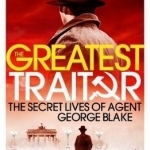
The Greatest Traitor: The Secret Lives of Agent George Blake
Book
'Sober, accurate and all the more thrilling for it. The best thing on Blake that we are likely to...

